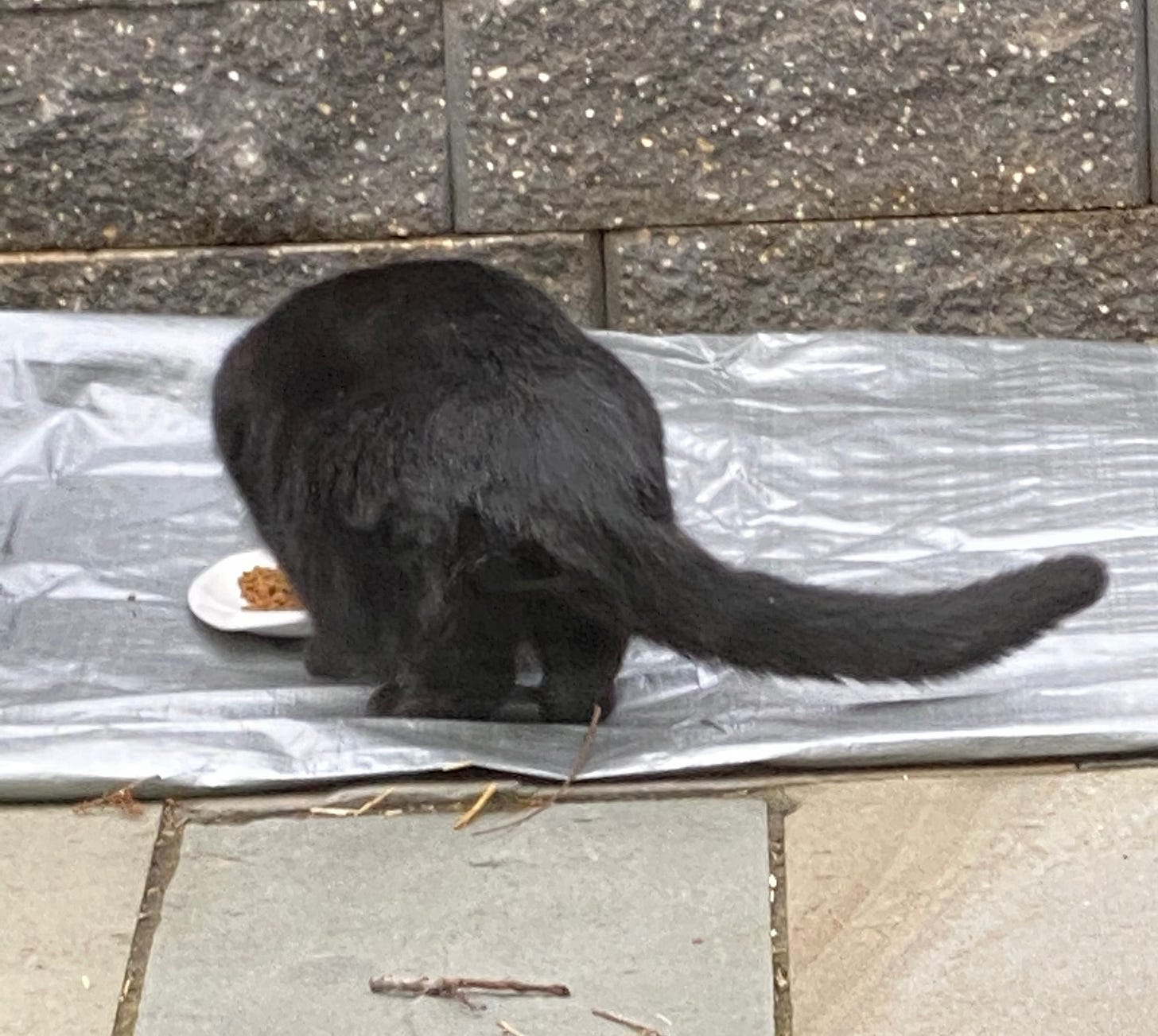A fox at dawn, jumping back into a novel-in-progress, and a new research method
In the weeks leading up to publication, I'm learning a new skill
The semester is over this week. It’s been a tough one two years into the pandemic—everyone is exhausted. Or maybe I should speak only for myself. I’m exhausted! I can’t completely blame that on current events though. It might have as much to do with waking up before dawn to feed the two feral cats waiting and mewing outside. They prefer to eat in the dark so I get up at five, both to beat the dawn and to see it. This morning there was a fox waiting for their leftovers. The other night there was a possum, and a skunk has been around. It’s sounds bucolic but I live on a very busy street. We all do our best to dodge the traffic, eat our meals in peace, and gets things done.
I fed my indoor cats, made a cup of coffee, and headed back upstairs to my desk where I poked around the Internet and waited for the sunrise. Then work. I’m reading back through the notes for my new novel, and as always, trying to make sense of them. I think I’m being thorough when I am writing them, but it can happen that I’m writing in a shorthand I’ll never be able to understand again. I’m determined to do better.
My new novel Fellowship Point will be published on July 5th. (Preorder button below, thanks in advance!) It took a lot of years to write it, and I lost track of versions and research. So now I’m trying to get organized for the summer of writing ahead. One of my problems is that though I can figure out the best way to pack the trunk of a car or how if an item will fit in a space, I have trouble keeping my writing files organized. Try Scrivener, you say? I have, and it’s not for me. Number them? Color code them? Create folders for drafts? I do, but it’s not enough. I’m not the only one who feels this way. When I bring it up with my writer friends they offer commiseration rather than a solution. How can this be, when technology is so advanced?
And research! I must have missed class the day of the explanation for how to organize notes. I was first inspired to do better when I read Jenny O’Dells excellent How To Do Nothing. Here’s a talk she gave that is well worth watching, many references that appear in the book, too, where she discussed her research methods,
an arduous process of reading and typing up notes that made me glaze over.
But it stuck with me, and have since I come across similar ideas in other places. In a recent interview in the NYRB, the scholar, critic, and author Merve Emre described her research to writing process. “I do not take notes as I read. I dog-ear—verso-top, recto-bottom—and underline sentences and paragraphs. I create a document and type out every underlined sentence and paragraph, sorted by book. Then I create a second document and sort the sentences and paragraphs by subject. The process of doing this usually gets me to a preliminary articulation of the argument I want to make, its beginning and its end, its arc, and its subclaims. I handwrite outlines in a very haphazard way, on the backs of bank statements and other stray envelopes strewn across my worktable. I try to write a thousand words a day during the week, and if I’m reading for one essay I’m writing for another.”
Bracing. And it reminded me of a similar method described by Ryan Holiday, author and host of the Daily Stoic newsletter and podcast. He has a YouTube vid describing his method, which including a big plastic Commonplace book. What he does is similar to both O’Dell and Emre. Have a look:
It’s my goal for the summer to do reading and research according to these guidelines. Doing things in this thorough way won’t feed the cats or clear out the garage, but it could mean that I’ll be able to find and understand my notes when I go back to them.



